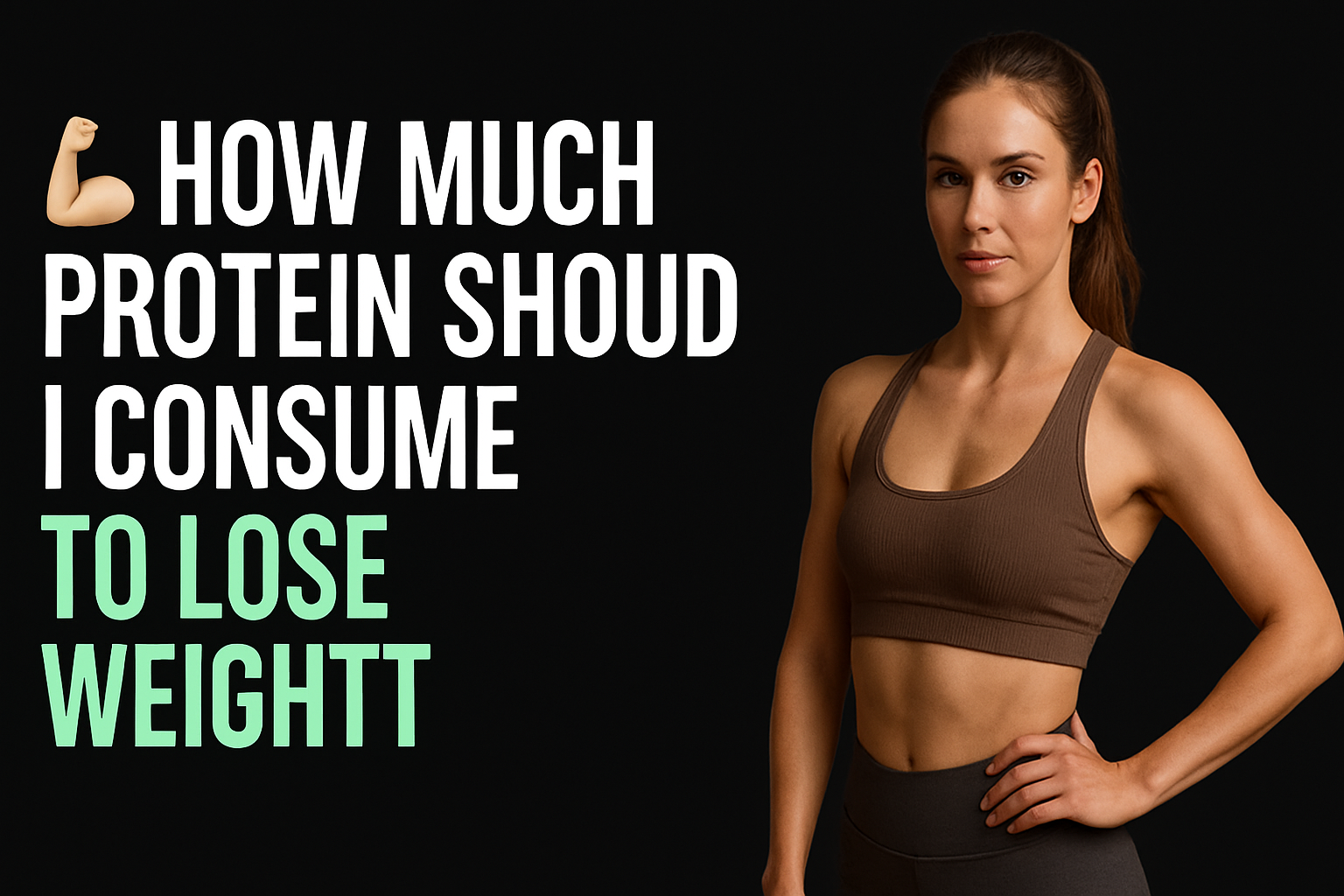When it comes to losing weight, there are countless strategies, but one principle remains consistent across most diets: eating enough protein is critical for effective fat loss while preserving muscle mass.
But how much protein should you consume to lose weight?
In this guide, we’ll break down everything you need to know — including exact recommendations, how to calculate your needs, and tips to maximize results.
Why Is Protein Important for Weight Loss?
Protein plays several key roles in weight loss:
Promotes Fullness: Protein is more satiating than carbohydrates or fats. Eating more protein helps reduce hunger and calorie intake naturally.
Preserves Muscle Mass: During weight loss, your body can lose both fat and muscle. Adequate protein helps protect your lean muscle tissue.
Boosts Metabolism: Digesting protein burns more calories than digesting fats or carbs (this is called the thermic effect of food).
Enhances Fat Loss: Studies show high-protein diets lead to greater fat loss compared to lower-protein diets, even with similar calorie intake.
How Much Protein Should You Eat Per Day to Lose Weight?
The amount of protein you should consume depends on factors like your body weight, activity level, and overall health goals.
Here are general guidelines based on current research:
| Goal | Protein Intake Recommendation |
|---|---|
| Minimum daily intake for weight loss | 1.2 – 1.6 grams per kilogram of body weight |
| Higher intake for active individuals or muscle preservation | 1.6 – 2.2 grams per kilogram of body weight |
Example:
If you weigh 70 kg (154 lbs):
Minimum intake: 70 x 1.2 = 84 grams per day
Higher intake: 70 x 2.2 = 154 grams per day
✅ Typical Range for Weight Loss:
0.54–1.0 grams per pound of body weight (or 1.2–2.2 grams per kg)
How to Calculate Your Personal Protein Needs?
Here’s a simple step-by-step:
Find your weight in pounds (or kilograms).
Multiply your weight by:
0.54–0.73 if you are moderately active.
0.8–1.0 if you are highly active or strength training.
Quick Calculator Example:
Weight: 150 lbs
Goal: Moderate exercise
150 x 0.6 = 90 grams of protein per day
Best Sources of Protein for Weight Loss
Focus on lean, high-quality protein sources that are lower in fat and calories. Some excellent options include:
Eggs and egg whites
Chicken breast and turkey
Fish (like salmon, tuna, cod)
Greek yogurt (high-protein varieties)
Cottage cheese
Plant-based options (like lentils, chickpeas, quinoa, tempeh, tofu)
Protein powders (whey, pea, rice, hemp) if needed for convenience
Tip:
Aim to include protein at every meal to stay full longer and stabilize blood sugar levels.
How to Distribute Protein Throughout the Day?
Research suggests spreading your protein intake evenly across meals helps maximize muscle retention and fat loss.
Breakfast: 20–30g
Lunch: 30–40g
Dinner: 30–40g
Snacks: 10–20g
✅ Pro Tip: Start your day with a high-protein breakfast to control hunger and cravings later on.
Common Mistakes to Avoid
Eating too little protein: You risk losing muscle, lowering metabolism, and feeling more hungry.
Relying only on supplements: Prioritize whole foods whenever possible.
Ignoring other macronutrients: While protein is important, healthy fats and complex carbs also play vital roles in sustainable weight loss.
FAQs About Protein and Weight Loss
Q: Can too much protein be harmful?
A: For healthy individuals, high-protein diets (up to 2.2 g/kg) are generally safe. However, people with kidney disease should consult a doctor.
Q: Does eating more protein automatically mean more weight loss?
A: No. Weight loss still requires a calorie deficit. Protein helps, but overall calorie balance matters.
Q: Is plant-based protein enough for weight loss?
A: Absolutely! You can lose weight on a plant-based diet by combining different plant proteins to meet your daily needs.
Final Thoughts
When it comes to losing weight effectively, protein is your secret weapon.
Aim for around 1.2–2.2 grams of protein per kilogram of body weight per day, depending on your goals and activity level.
Combine your protein-rich diet with regular exercise and healthy habits, and you’ll be on the fast track to losing fat, maintaining muscle, and feeling amazing!
Remember:
👉 Consistency beats perfection. Start where you are and adjust as you progress!

